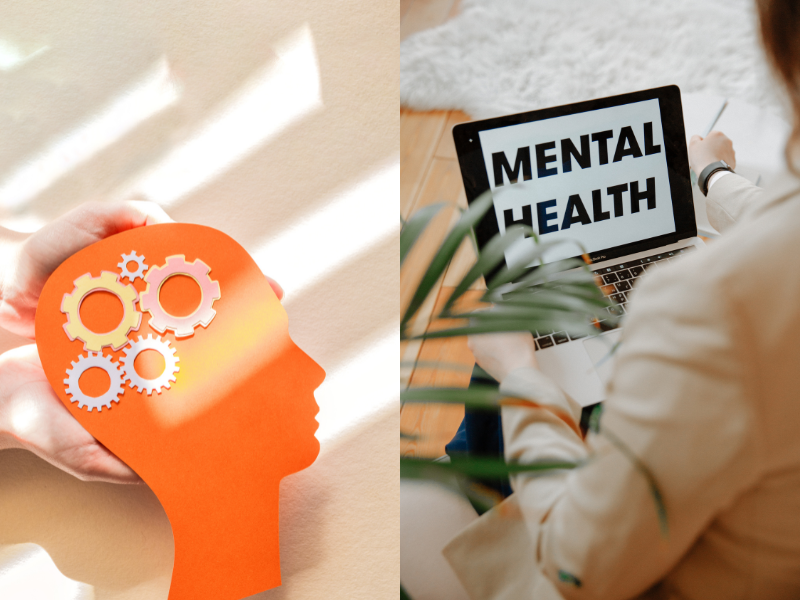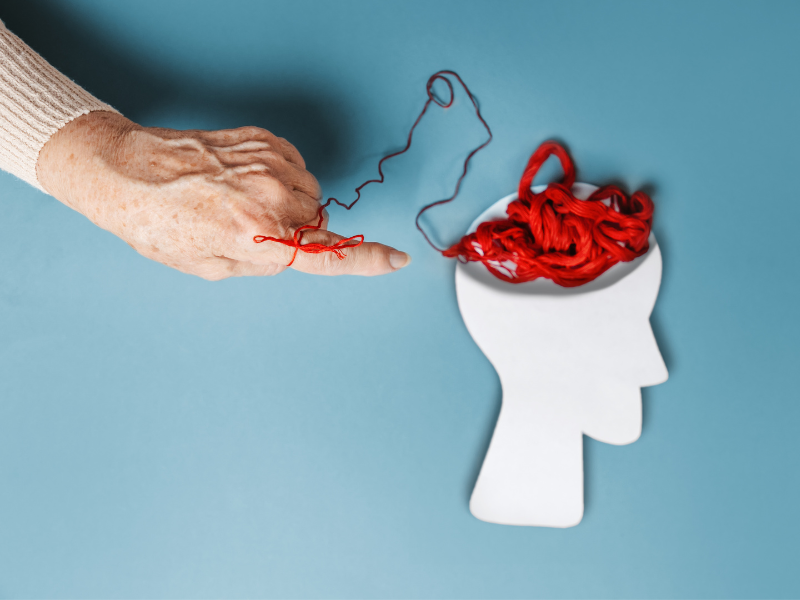Occupational Therapy in Mental Health is an important part of rehabilitative treatment, but always as part of a multidisciplinary approach to the patient.
Occupational therapists specialising in this area of mental health work to help people develop skills, regain function and improve their quality of life.
Pathologies such as depression, anxiety, bipolar disorder or schizophrenia may require Occupational Therapy intervention.

Main areas of intervention of Occupational T. Occupational Therapy in Mental Health
Occupational therapy in mental health is a valuable tool that offers comprehensive and personalised support to individuals facing challenges due to mental health problems, contributing significantly to their recovery and overall wellbeing.
What exactly does this intervention? Let’s look at the main areas in which occupational therapists work in mental health.
Assessment and Diagnosis:
Functional skills assessment: Occupational therapists assess patients’ abilities to perform daily activities such as self-care, household activities, work and leisure.
Barrier identification: Identifies physical, cognitive, emotional and social barriers that affect the person’s ability to participate in daily occupations.
Intervention:
Skills development: They work with patients to develop skills needed to carry out daily activities, including social skills, time management and coping strategies.
Environmental modification: They make adjustments to the patient’s environment to facilitate independence and participation, such as adapting the home or workplace.
Activity-based therapy: These use meaningful activities to motivate patients and improve their mental health. These activities should be personalised for the patient according to their individual tastes and preferences (art, music, physical exercise, cooking, gardening, among others).
Planning and goal setting: Helping patients to set and achieve realistic and meaningful goals.
Education and Advice
Patient and family education: Provide information and education about mental health conditions and how to manage symptoms.
Stress management: They teach stress management techniques and coping strategies for dealing with difficult situations.
Psychosocial rehabilitation
Community integration: They help patients to integrate into the community, find employment and participate in social activities.
Vocational rehabilitation: They assist patients in finding employment and developing the skills necessary to maintain a job.

Benefits of Occupational Therapy in Mental Health
- Improved quality of life: By addressing difficulties in daily life, OT can significantly improve patients’ quality of life.
- Aumento de la autonomía personal: Ayuda a los pacientes a ser más autosuficientes y a depender menos de otros para sus necesidades diarias.
- Symptom reduction: Interventions can help reduce symptoms of mental illness and improve overall well-being.
- Strengthening self-esteem and confidence: Engaging in meaningful activities and achieving goals can improve patients’ self-esteem and confidence.
Examples of activities
Implement programmes that teach life skills such as money management, personal hygiene and time planning.
Help the patient establish and maintain daily routines that include self-care activities, exercise and time for hobbies, which can improve structure and reduce apathy.
Develop a plan for gradual exposure to anxiety-provoking situations and teach stress management strategies.

Use of new technologies in Occupational Therapy and Mental Health
In addition to traditional intervention, today we have technology available to everyone such as tablets, computers or virtual reality headset that we can use in occupational therapy sessions with mental health patients.
We could work by taking advantage of these everyday devices together with professional software for physical, cognitive and occupational rehabilitation.
There are for example activities to work on the main cognitive areas that are affected in the majority of psychiatric patients: attention, memory, inhibition, executive functions…
We can also offer physical exercises for improving coordination, balance, gait, joint range of motion, body structure…
And of course, occupational, work and daily life activities that allow us to improve personal autonomy through play.

Would you like to know a specific exercise programme for Occupational Therapy?
If you are a rehabilitation professional working with patients in any field (mental health, neurorehabilitation, trauma rehabilitation…) you can request more information about Rehametrics software without obligation.
Fill in this form to request information or a free trial:


